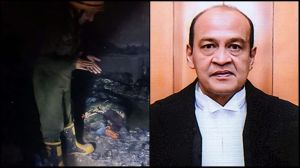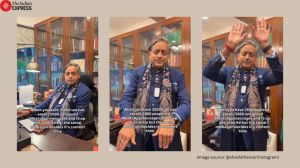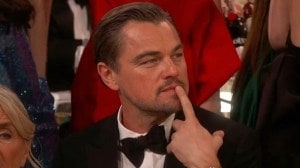Wagner chief Yevgeny Prigozhin dead: Why critics are alleging Putin’s role
In the past few years, the deaths or attempted murders of Putin’s opponents under mysterious circumstances have attracted attention.
 A view shows portraits of Russian mercenary chief Yevgeny Prigozhin (left) and Wagner group commander Dmitry Utkin at a makeshift memorial outside the local office of the Wagner private mercenary group in Novosibirsk, Russia, August 24, 2023. (REUTERS/Stringer)
A view shows portraits of Russian mercenary chief Yevgeny Prigozhin (left) and Wagner group commander Dmitry Utkin at a makeshift memorial outside the local office of the Wagner private mercenary group in Novosibirsk, Russia, August 24, 2023. (REUTERS/Stringer) Russia’s Yevgeny Prigozhin, head of the Wagner Group that recently attempted a mutiny against President Vladimir Putin in Moscow, died in a plane crash on Wednesday (August 23).
The Wagner Group was responsible for supplying mercenaries or paid fighters to conflicts in regions like Ukraine and Niger. Prigozhin was last seen in a video released earlier this week, where he claimed to be in Africa. The video’s date is yet to be confirmed. His men had relocated there after a so-called coup attempt in Moscow in late June this year.
Late on Thursday, Putin described Prigozhin as a talented businessman whom he had known since the 1990s and said the investigation into the crash would take time.
AP reported Russia’s civil aviation agency as saying that Prigozhin and six top lieutenants of the Group were listed as being on a business jet that took off from Moscow, with a crew of three others. Rescuers quickly found all 10 bodies. “I don’t know for a fact what happened but I’m not surprised,” US President Joe Biden said. “There’s not much that happens in Russia that Putin’s not behind.”
In the past few years, the deaths of Putin’s opponents under mysterious circumstances have come under focus. In July, at the Aspen Security Forum, US Secretary of State Antony Blinken said: “If I were Mr. Prigozhin, I would remain very concerned. NATO has an open-door policy; Russia has an open-windows policy.”
Here are some other notable incidents where critics have alleged Putin’s role:
Pavel Antov
Earlier in December 2022, a Russian national and sausage tycoon named Pavel Antov died after he fell from a hotel in Odisha, India. A friend of his named Vladimir Bidenov had also died in the same hotel two days earlier. There was speculation on whether the Antov had died by suicide.
Antov was a deputy of the Legislative Assembly of the Vladimir Region. While not exactly known as a critic of Putin, in June 2022, he criticised the Russian missile strikes on Ukraine. He had written on social media, “A girl has been pulled out from under the rubble, the girl’s father appears to have died. The mother is being pulled out with a crane, she is trapped under a slab. To tell the truth, it is extremely difficult to call this anything other than terror.” Later, after he faced backlash, Antov deleted the social media post and said that it was an “unfortunate misunderstanding” and a technical error.
Roman Abramovich
In March 2022, billionaire Roman Abramovich allegedly suffered symptoms of poisoning. On March 3, Abramovich, who owns the football club Chelsea FC, joined Russian and Ukrainian negotiators for peace talks at the Ukraine-Belarus border. Two other people here also experienced similar symptoms consistent with poisoning, according to the investigative journalism website Bellingcat. All three people recovered in a week.
Aleksei Navalny
In 2020, Russia’s most prominent opposition leader Aleksei Navalny, a fierce critic of Putin, survived poisoning by a nerve agent. He claimed it was carried out by Russian authorities, an allegation they continue to deny. In August 2020, Navalny’s spokesperson Kira Yarmysh said on Twitter that while Navalny was returning to Moscow by air, he felt unwell as a result of which the plane made an emergency landing.
“We assume Aleksei was poisoned with something mixed into the tea. It was the only thing that he drank in the morning. Doctors say the toxin was absorbed faster through the hot liquid. Aleksei is now unconscious,” Yarmysh wrote on the social media platform at the time of his poisoning.
Navalny survived the poisoning, and after his return to Russia in February 2021, was arrested. In August 2023, he was sentenced to 19 years in prison.
Nikolai Glushkov
A UK Court ruled in 2021 that the death of Nikolai Glushkov, who was found dead in March 2018 in London, was due to strangulation at his home. Glushkov was an exiled businessman who was living in London after seeking political asylum in 2010. According to The Independent, Glushkov gained notoriety in the 1990s when Russia was trying to transition into a market economy.
He was also a close friend of Boris Berezovsky, also a Putin critic who was found hanging at his home in Berkshire in 2013. Berezovsky was also a friend of Alexander Litvinenko, a former spy who was killed in November 2006 after he ingested a fatal dose of polonium 210 while drinking tea at Millenium Hotel in London. At the time he was meeting with Russian politician Andrei Lugovoy and his associate Dmitri Kovtun.
Sergei Skripal
On March 4, 2018, former Russian spy Skripal and his daughter Yulia Skripal were found unconscious on a bench in the British city of Salisbury after they were poisoned by a military-grade nerve agent Novichok. Both of them have since recovered. Police officer Nick Bailey, one of the first responders who fell seriously ill after being exposed to the nerve agent, also recovered.
The only person who died from the exposure was a 44-year-old woman who passed away a few months later when she came into contact with the nerve agent. The woman was exposed to it by a counterfeit perfume bottle that had been discarded in Salisbury.
In 2006, Skripal was sentenced to 13 years in prison after he was accused of spying for Britain. At the time, Russia claimed that Britain’s intelligence service MI6 had paid him $100,000 for revealing the identities of Russian secret agents in Europe. After his conviction, Skripal was pardoned in 2010 by then Russian president Dmitry Medvedev.
According to some news reports, Skripal and his daughter are now staying in New Zealand under new identities.
Viktor Yushchenko
In 2004, Viktor Yushchenko was poisoned in the midst of an election campaign in Ukraine, in which he was expected to defeat the Russia-backed candidate. Yushchenko ingested dioxin, a chemical found in Agent Orange while he was having dinner with the head of Ukraine’s security service.
The poisoning severely disfigured his face and his test results showed that he suffered from chloracne, which is caused by exposure to toxic chemicals. Yushchenko eventually recovered and went on to win the presidential elections that year.
This explainer contains portions of a previous, longer article first published in 2022. You can click here to read it.
- 01
- 02
- 03
- 04
- 05






































